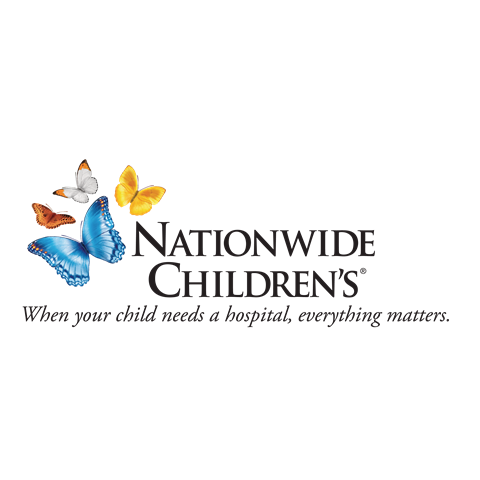Available Technologies
# of Displayed Technologies: 5 / 5
Applied Category Filter (Click To Remove): Respiratory Syncytial Virus (RSV)
Categories
 Neuregulin-1 as Protection from Respiratory Viral Infections
Neuregulin-1 as Protection from Respiratory Viral Infections
TS-002168 — Children have a higher chance of morbidity and mortality from respiratory viral infections. Severe respiratory viral infections like Respiratory Syncytial Virus (RSV) and Parainfluenza viruses can lead to the development of asthma in patients. Clinical researchers at Nationwide Children’s Hospital found that neuregulin-1 (Nrg-1) may be an effective and protective treatment for patients diagnosed with severe respiratory viral infections. Their successful models with mice showed that Nrg-1 may prevent post-viral airway disease and reduce mortality if further studied and applied to human patients in the future.
- College:
- Inventors: Grayson, Mitchell; Hussain, Rehan
- Licensing Officer: Murrah, Kyle
.png) Vaccines and Methods of Making and Using Vaccines for Prevention of Respiratory Scynytial Virus (RSV) Infections
Vaccines and Methods of Making and Using Vaccines for Prevention of Respiratory Scynytial Virus (RSV) Infections
TS-000372 — Respiratory syncytial virus (RSV) is the most frequent cause of lower respiratory disease and hospitalization in infants, but there is currently no vaccine available to prevent or treat RSV disease. Researchers at Nationwide Children’s Hospital and The Ohio State University have developed a novel method for designing RSV vaccines using a Vesicular Stomatitis Virus (VSV) vector. VSV is attenuated in humans, so it can infect people and express inserted genes without causing disease. Additionally, VSV grows to high titers in culture, allowing for efficient vaccine production.
- College:
- Inventors: Peeples, Mark
- Licensing Officer: Zalucha, Ellen
.png) Increasing the Yield of Respiratory Syncytial Virus Live Attenuated Vaccines
Increasing the Yield of Respiratory Syncytial Virus Live Attenuated Vaccines
TS-000214 — Preventing RSV attachment protein cleavage in vaccine producing cells to increase yield.
A widespread economic problem of RSV vaccine candidates is their inefficient production. RSV vaccine candidates are produced in Vero, a cell line isolated from African green monkey kidney. Infectious disease experts at Nationwide Children’s Hospital have discovered RSV grown in Vero cells has …
- College:
- Inventors: Peeples, Mark; Corry, Jacqueline; Kwilas, Steve
- Licensing Officer: Zalucha, Ellen
.png) Novel Live Attenuated Vaccines for Human Metapneumovirus
Novel Live Attenuated Vaccines for Human Metapneumovirus
TS-000187 — Pneumoviruses include many important human and animal pathogens. Among these viruses, human respiratory syncytial virus (RSV) and metapneumovirus (MPV) is a leading cause of acute respiratory tract infection in infants and children. Despite major efforts, there is no vaccine to combat these diseases due to the difficulty of constructing a virus that is stable, attenuated and can still provoke an adaptive immune response. Infectious disease experts at Nationwide Children’s Hospital and The Ohio State University have developed a panel of recombinant RSV (rhRSV) and MPV (rhMPV) that are defective in zinc binding activity. The inability of these viruses to bind zinc has rendered them genetically stable and highly attenuated in an animal model. Therefore, our rhRSVs and rhMPVs are excellent vaccine candidates for hMPV.
- College:
- Inventors: Peeples, Mark
- Licensing Officer: Zalucha, Ellen
.png) Enhanced Immunogenicity of a Modified Respiratory Syncytial Virus Vaccine with Mutations in One or Both Non-Structural Proteins
Enhanced Immunogenicity of a Modified Respiratory Syncytial Virus Vaccine with Mutations in One or Both Non-Structural Proteins
TS-000132 — Mutation of the RSV NS1/2 proteins to attenuate the virus and boost immunogenicity
Respiratory syncytial virus (RSV) is the leading cause of upper and lower respiratory tract infections in infants and young children, and the most common cause of bronchiolitis and pneumonia in children younger than 1-year of age. A vaccine does not exist in part because RSV non-structural protein g…
- College:
- Inventors: Peeples, Mark; Flano, Emilio; Mejias, Asuncion; Ramilo, Octavio; Teng, Michael Nan-hao (Mark)
- Licensing Officer: Corris, Andrew
